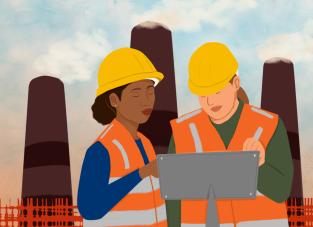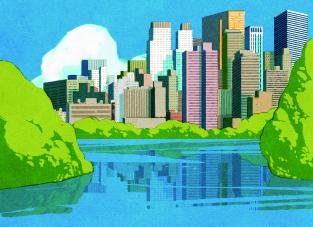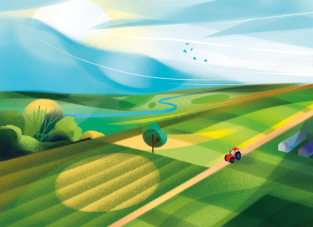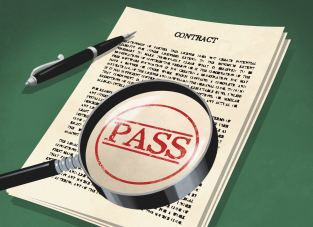Circular Economy
Local Project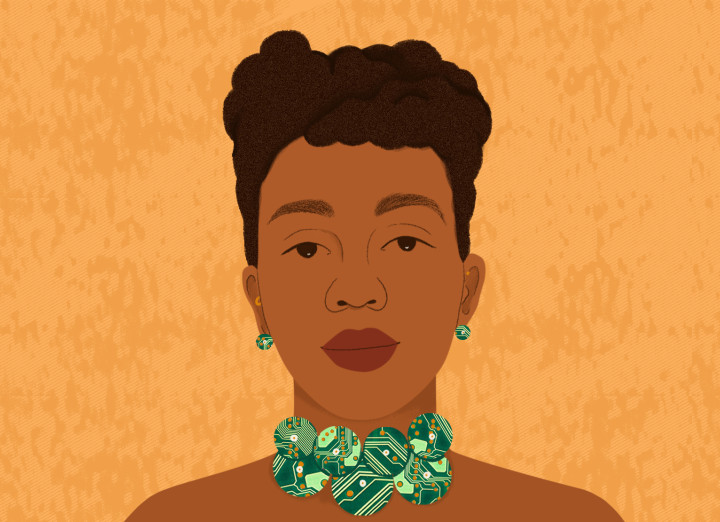
Most economies work in one direction. They take materials from nature, and use them to make products. The products are then thrown away as ‘waste’. The process repeats. This linear process is highly environmentally destructive.
By contrast, in a circular economy there is very little waste. People aim to reduce the amount of materials and products needed. They then keep them in operation for as long as possible, maintain and retrofit them to extend their lifetime, and then reuse or recycle their parts into new products.
Reusing and recycling materials can reduce the greenhouse gas emissions produced when products are made, as raw materials require a lot of treatment and effort to obtain. It reduces the extraction of finite materials and the destruction of nature in the process. Jobs can be created in sectors that help reuse and recycling. This cycle can also boost innovation, as it challenges companies to make more durable products.
But the circular economy can be designed badly. Not all waste can be prevented, and can still be disposed of irresponsibly. Relying on continued material growth (more stuff) of the economy will always produce pollution. Economies are often exploitative of people and highly unequal, a situation that a circular economy cannot tackle without a just, people-centered approach to environmental sustainability.
A circular economy approach is being adopted by communities, companies, and countries around the world. But economies are still a long way from going beyond the destructive linear model.
When you take this action, if you have 2–4 Regulation tags in this card's stack, remove 1 Emissions token (of any kind) from your player board. If you have 5 or more Regulation tags in this card's stack, remove 1 Emissions token (of any kind) from your player board and decrease your Energy Demand by 1.
You may take this action once per round.
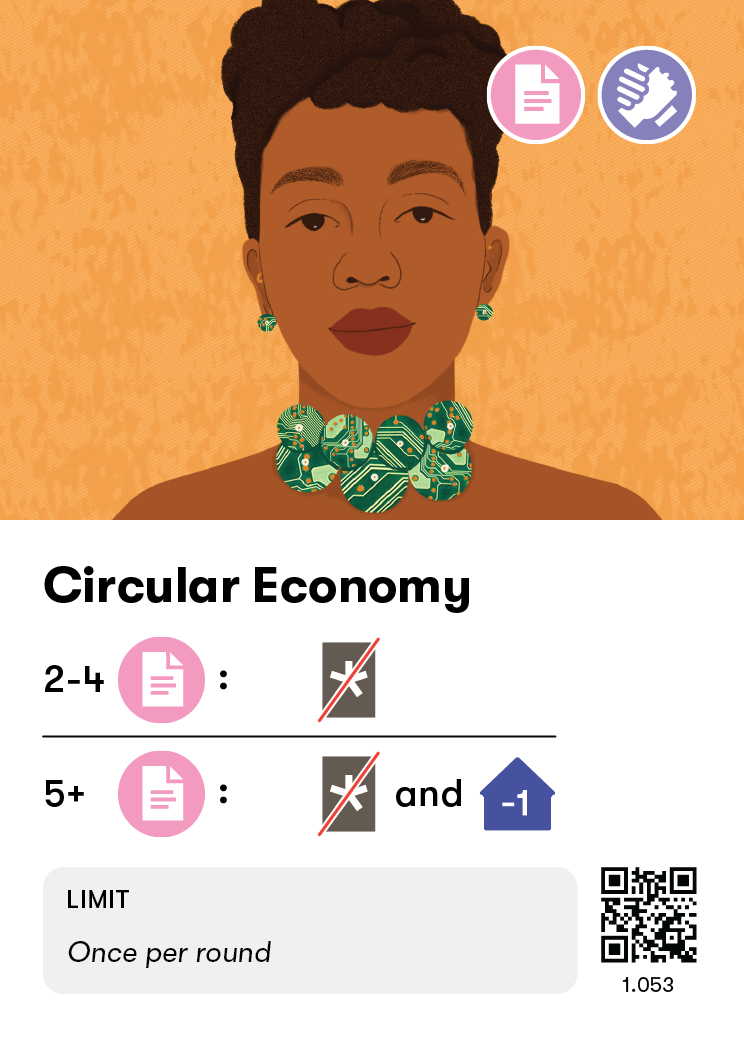
▶️ The basics of a circular economy (Ellen MacArthur Foundation)
Circular Economy (UNCTAD)
What is a circular economy? (Ellen MacArthur Foundation)
How to Build a Circular Economy (World Resources Institute)
Join the Doughnut Economics community.
